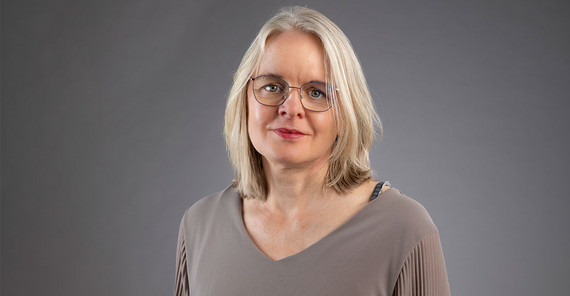Separate and compound spelling ... for beginners: stick to the core
Have you ever made soup from peas? (in German: aus Erbsen Suppe). Makes “Erbsensuppe.” (pea soup – in German written as one word.) What sounds like an attempted pun, for Fuhrhop proves, “To a great extent, spelling can be mastered intuitively.” The fact that this is often perceived differently is due to the way it is widely taught. “Unfortunately, separate and compound spelling is very often taught by using cases of doubt.” For example, Rad fahren (cycling – in German written separately). Most cases where we have to decide whether we should write words together or separately are not that complicated. “We should talk less about the problematic cases and more about the many clear ones,” the linguist says. “Then it becomes apparent that separate and compound spelling begins with learning to write, with understanding the space. Then we realize: We know a lot and make only a few mistakes.” That’s how spelling should work, for most people. We should be able to use it. Spelling it out may be reserved for those who have made it their profession.
Punctuation... for the advanced: reading support instead of writing problems
Teachers impart knowledge and various skills in German lessons: reading and understanding texts, forming words and sentences, analyzing texts, and writing texts for a wide variety of purposes. Students learn a lot on many different grammar levels: phonology, morphology, syntax, and the associated spelling and punctuation. Whether they are successful, however, is often “read” and evaluated by the last two categories. “I have already given students texts with many spelling mistakes but good content and style,” Fuhrhop says. “It became apparent that it is quite difficult to simply ignore the mistakes. You actually have to practice seeing the content behind them.” Nevertheless, according to the linguist, it is important not to measure the value of a text too much by its spelling because this is, above all, a means to an end. “We should look at it the other way around: Everything that makes writing difficult makes reading easier.” Spaces, upper and lower case, punctuation, and much more are, above all, help for reading. “And that’s exactly how we should teach spelling. After all, people read much more than they write.”
Reforms... for professionals: Fewer rules are more
For many people, spelling rules are a jungle that they are reluctant to enter. Prof. Fuhrhop is deeply familiar with grammar; she wrote her doctorate on “borderline cases of morphological units” and habilitated on the “grammatical foundation of separate and compound spelling.” She is well versed. And she says that grammar is descriptive, should describe the use of language as well as possible, not prescribe it. Two examples from history show that this does not always work very well. Only five years after the founding of the German Empire in 1871[SV1] , there was a first attempt to standardize German spelling. As a result, it was decided to write verb suffixes such as -iren/-ieren and -inen/-ienen consistently with ie. “Given this change, many people now had problems with loanwords such as Apfelsine (orange)," she explains. “A regulation that seemed so small still has a negative effect today.” Fuhrhop also considers the spelling reform of 1996 a failure. “That was much ado about too few changes,” she says. “One should not have interfered in the spelling but instead formulated the rules reasonably. Due to the rules for separate and compound spelling, 10,000 words – phrasal verbs – were declared exceptions at that time. That was unnecessary.” But formulating the spelling rules better does not mean that a clear rule is always necessary, she clarifies. She regards this as a freedom that does justice to the quite flexible system of language. What does Fuhrhop particularly like about the German language? That it is the world champion of compound formation (such as “Hauptstadthochmut” – “capital city arrogance”). What she does not like: a forced nominal style. “I always say: Have the courage to use a verb!” When done well, both lead to the goal.
Reading tip
NannaFuhrhop (2020): Orthografie. Kurze Einführungen in die Germanistische Linguistik
Prof. Dr. Nanna Fuhrhop has been Professor of German Linguistics at the University of Potsdam since 2022. She has been dealing with spelling and the associated questions of grammar for a long time. In 2024, she was appointed to the Council for German Orthography by the Standing Conference of the Ministers of Education and Cultural Affairs. This is an intergovernmental body whose 41 members represent seven federal states and which develops proposals for the regulation of spelling.
This text was published in the university magazine Portal – One 2025 “Children” (PDF).


